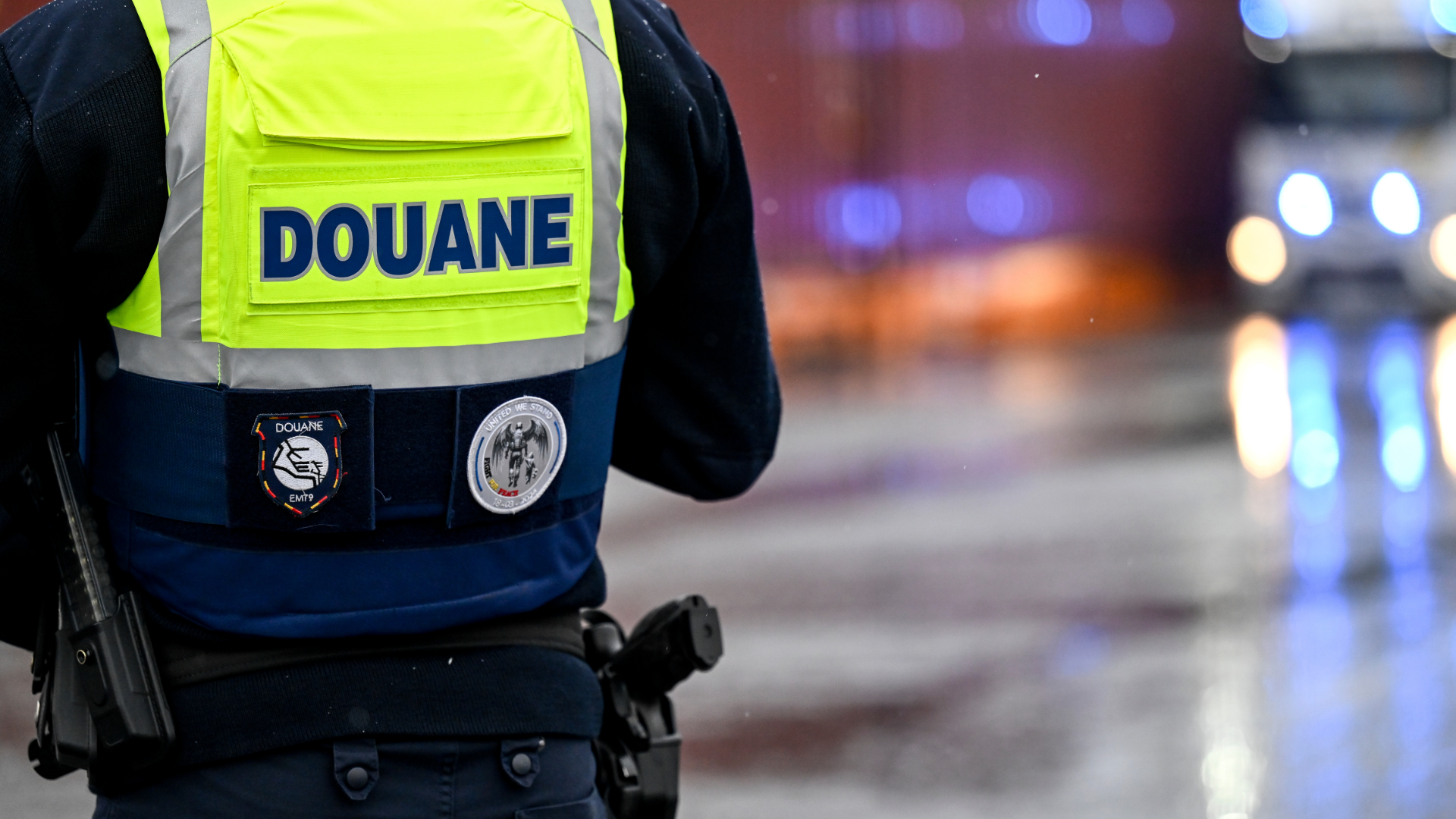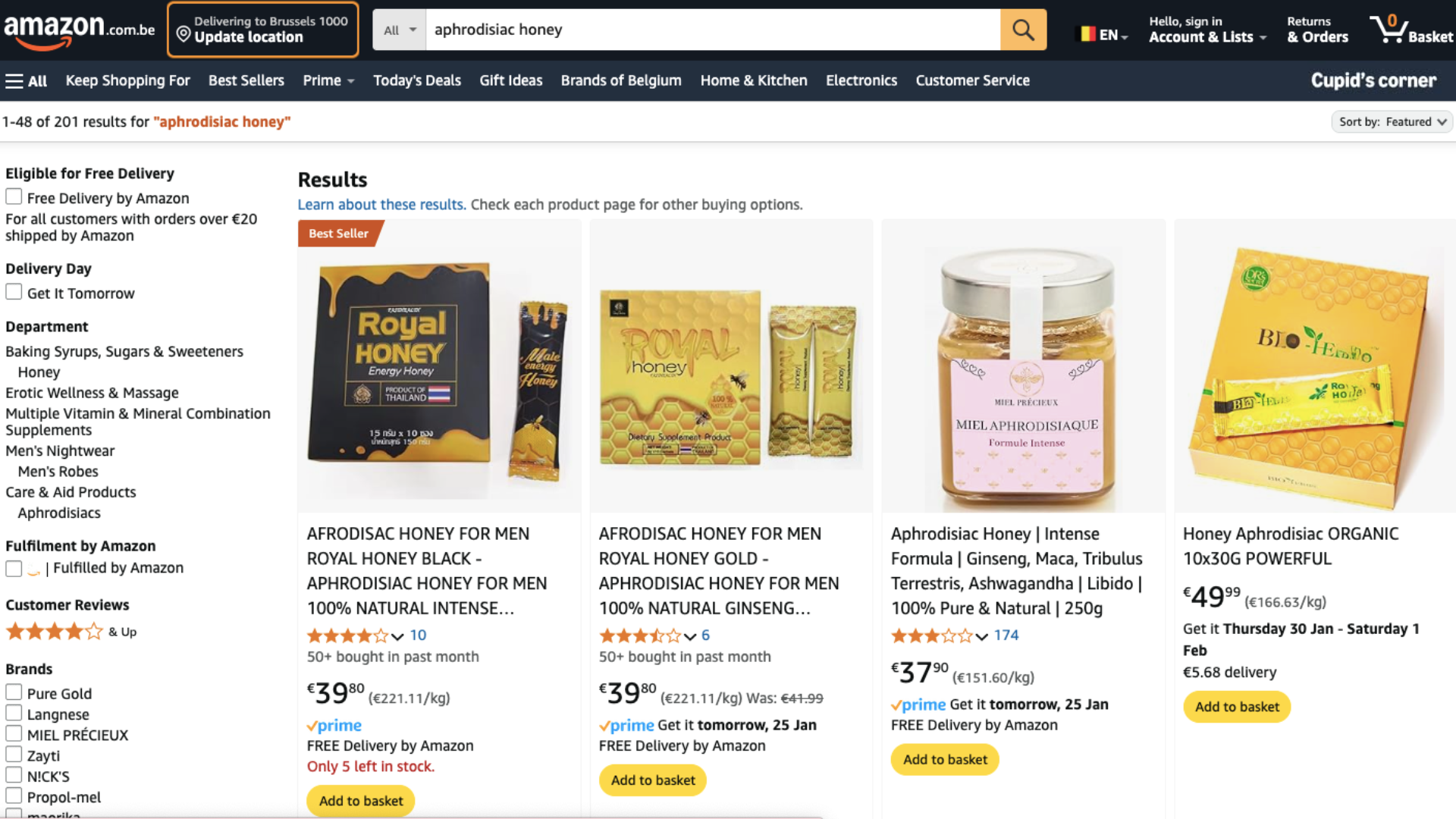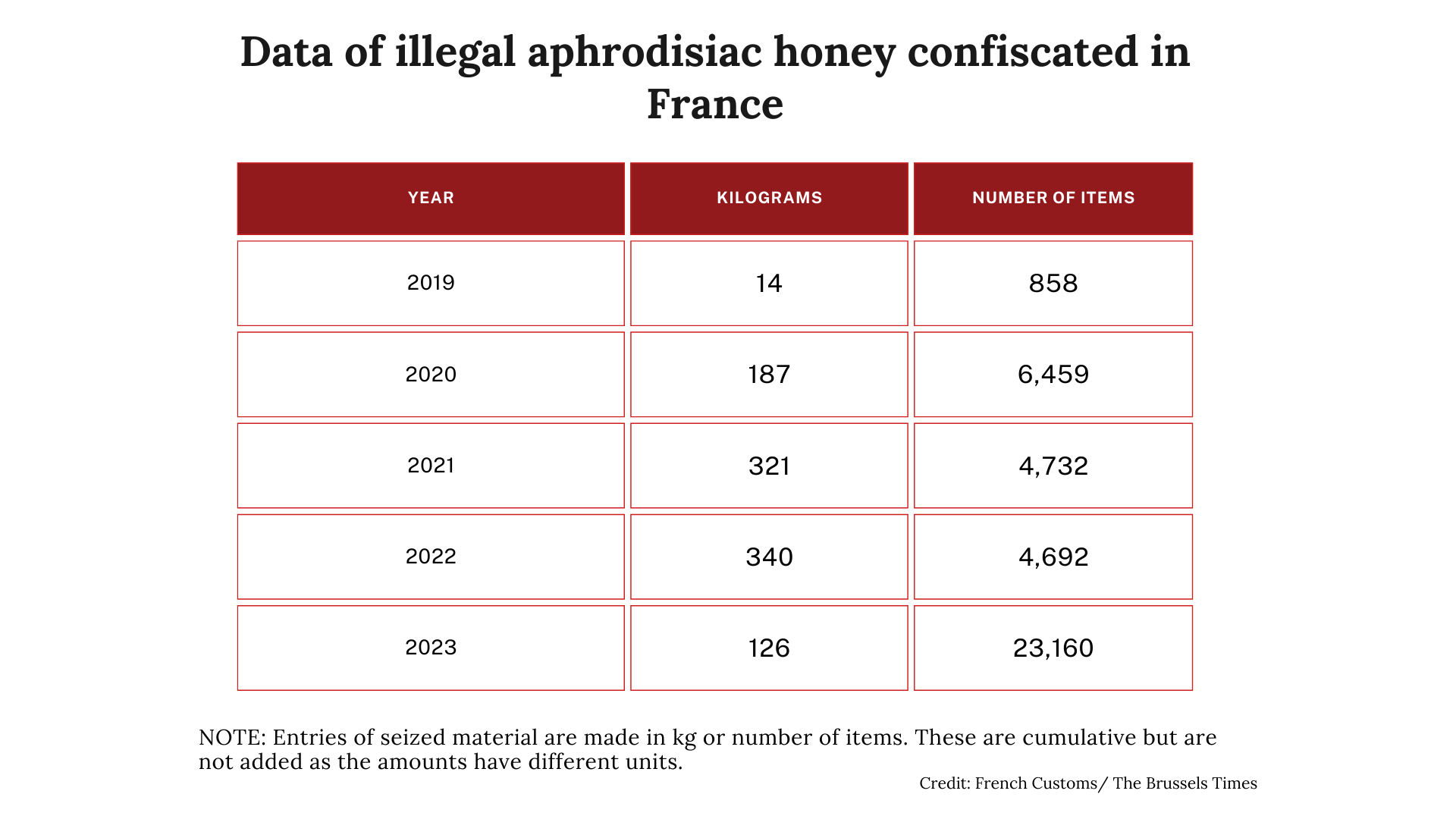Large seizures of libido-enhancing honey in France have put a spotlight on the growing illicit aphrodisiac food market. Despite the lack of data on its popularity, the craze has also reached Belgium.
Last week, a report that around 13 tonnes of aphrodisiac honey were seized in November 2024 by French customs at the Port of Marseille raised concerns over the health effects of this sex trend.
French customs have seen a rise in illegal honey imports over the years: from 858 illicit aphrodisiac substances confiscated in 2019 to 23,160 seized in 2023. Most of which originate from Malaysia, Thailand, Turkey, and Tunisia.
Aphrodisiac or libido-enhancing honey is illegal, as it contains medical substances like vasodilators, such as sildenafil or tadalafil. Vasodilators are typically used to treat erectile dysfunction. They require a medical prescription due to their risks.
Side effects range from a drop in blood pressure, heart rhythm disturbances, and persistent erections which could lead to complications such as erectile dysfunction or penile necrosis.
The dangers are heightened by the fact that many consumers are unaware that the honey sachets contain medical substances with vasodilatory properties, explains the spokesperson of Belgium's Poison Control, Patrick De Cock.
Belgian voyage
As it is an illegal substance, there is no data on how often this type of honey is used, explained a press officer at the Federal Agency of Medicines and Health Products (FAMHP).
However, figures of seized goods containing vasodilators, namely PDE5-inhibitors, speak to the presence of the business in Belgium.

Belgian customs. Credit: Belga/Dirk Waem.
In 2021, 46 seizures of goods with the inhibitors included 15.1kg of food, 328.8 litres of drinks, and 1176 units of (mostly) pre-dosed honey. In 2022, 40.6 kg of food, 26.8 litres of drinks, and 2907 units of (mostly) pre-dosed honey were seized, according to the FAMHP.
FAMHP officials also added that most products were discovered in postal packages or luggage of passengers coming from non-EU countries. The purchases of the product in Belgium are mostly done online, according to the Belgian Federal Agency for Food Chain Safety (FASFC).
The number of confiscated products in 2023 and 2024 could not be provided by the FAMHP or the FASFC. The Belgian customs are yet to respond to requests for data by The Brussels Times.
Nonetheless, the FASFC highlighted that in 2023, an analysis of 37 samples of dietary supplements was carried out. They found that 26 of the 37 samples were non-compliant. 22 of these samples – which included libido-boosting honey – were found to have sildenafil and tadalafil.
Honey at home
Although the reasons for the product's popularity are unknown, authorities already have some working theories.
"We can assume that it is easier to obtain this type of product than as a medication, that its 'one dose is one packet' packaging is attractive and that consumers imagine that it is a natural product," a representative at the French customs told The Brussels Times.
In France, while confiscated honey concerns imports destined for the French market, it is possible that other countries could be impacted by the illegal smuggling, according to the French Customs' press officer, Justine Fontaine.
"The large quantities imported, by sea in particular, are intended for resale to private individuals through informal distribution networks or local shops [...] generally night food stores or exotic food shops," explained Fontaines. E-commerce is also an avenue from which the product enters French soil, he added.
Germany too has been impacted by the illicit honey market. Last year, around 80 kilograms of libido-enhancing honey were found in a passenger's luggage at the Cologne-Bonn airport. A few kilograms of this substance were also seized at a shop in Baden-Württemberg in 2024.
Last year, the Dutch Food and Consumer Product Safety Authority (NVWA) conducted an investigation into honey products with libido-boosting claims. Out of 21 products, 20 contained prohibited substances, namely sildenafil, tadalafil, and flibanserin (known as 'pink Viagra').
Consumer warning
There are no reports of medical interventions triggered by the consumption of aphrodisiac honey in Belgium, according to the Poison Centre's De Cock.
Additionally, no consumer complaints have been registered, according to the Belgian consumer protection organisation, Test Achats. "But we are looking into this ourselves," Test Achats' spokesperson, Laura Clays, told The Brussels Times.

Screen shot of aphrodisiac honey on sale online.
"It is possible that the seemingly legal aphrodisiac honeys on Amazon (with ginseng, ginger of ashwaganda) contain substances such as sildenafil. This has not been proven, we have not (yet) done any research on it. But it shows how popular this is," Clays added.
Nonetheless, Test Achats' position on the matter is clear, according to Clays: "We would most definitely warn consumers to not buy these products. There is a reason Viagra can only be sold with prescription."


